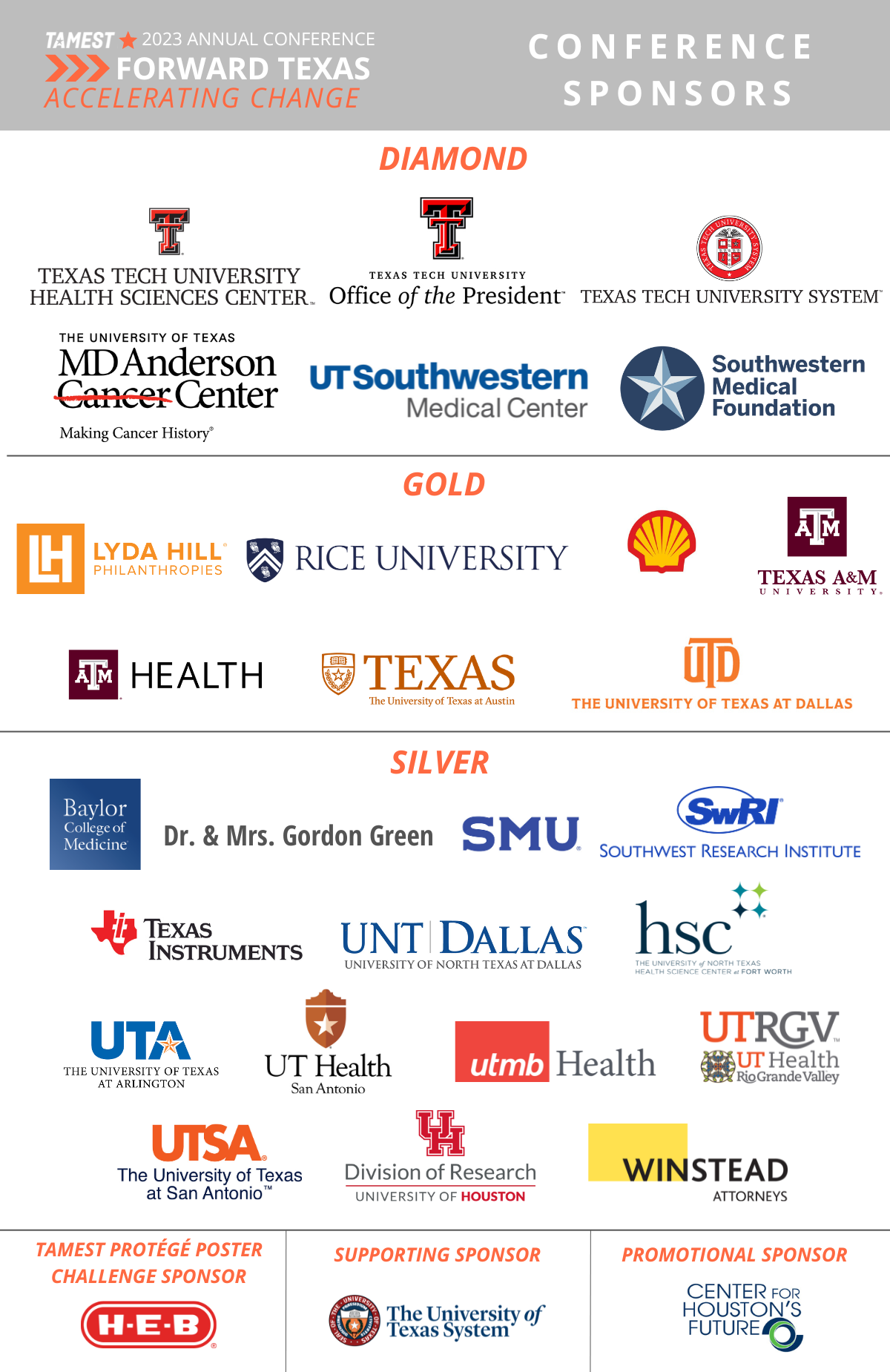
TAMEST 2023 Annual Conference speakers examined how science and technology are leading to fundamental changes in society. The program focused on four profound transitions already under way: CRISPR gene editing, “big” data science, renewable energy and decarbonization. Learn more about our TAMEST 2023 Annual Conference speakers below.
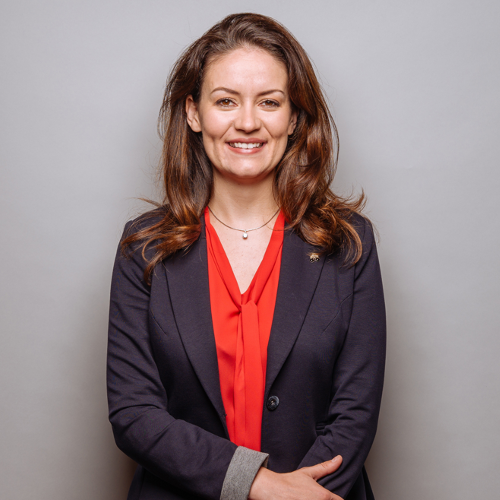
Leonela Amoasii, Ph.D.
Director
Research and Development
Vertex Pharmaceuticals
Previously, as a post-doctoral fellow, she worked in the laboratory of Dr. Eric Olson at the University of Texas Southwestern Medical Center in Dallas. Over the last years Leonela has been involved in developing a new therapeutic approach for correction of Duchenne muscular dystrophy using CRISPR/Cas9 genomic editing. She pursued the in vivo optimization of the CRISPR/Cas9 genomic editing, her work revealed promising results in mouse and large animals for translation of the genome editing technology to human patients.
Leonela did her graduate studies at the Institut de Genetique Biologie Moléculaire et Cellulaire (IGBMC) at the University of Strasbourg in France. During her doctoral studies, she uncovered the mechanistic basis of myotubular centronuclear myopathy and acquired expertise in the use of adeno-associated virus (AAV) for manipulation of gene expression in muscle.
She has lived and worked in several countries (Moldova, France, USA) and speaks 5 languages (romanian, russian, english, french and Italian). Leonela enjoys exploring new places, hiking, biking, volleyball and tennis. In her spare time, she enjoys music, reading and photography.
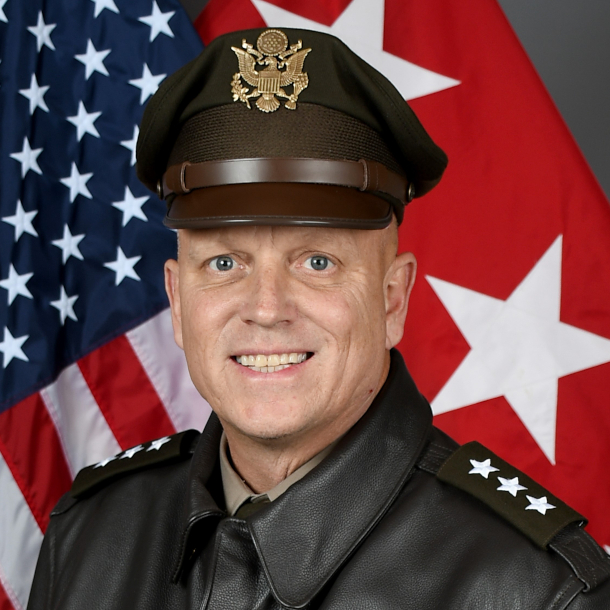
Lieutenant General Ross Coffman
Deputy Commanding General
Army Futures Command
LTG Coffman has been married to his wife Jacqui, for 25 years and together they have three wonderful daughters and an amazing nephew.
LTG Coffman’s military career began following graduation from Centre College and being commissioned an Armor Officer from the University of Kentucky’s ROTC program.
His company grade years were spent with the 3rd Armored Cavalry Regiment, 2nd Cavalry Regiment, and the National Training Center (NTC) Operations Group.
LTG Coffman served as a Field Grade with Joint Interagency Task Force South (JIATF-S), the 1st Armored Division, the NTC, and twice with the 3rd Infantry Division.
Most recently LTG Coffman served as the Deputy Commanding General for Maneuver in the 1st Infantry Division with duty in Eastern Europe and the Director of the Next Generation Combat Vehicles Cross Functional Team.
His civilian education includes a bachelor’s degree from Centre College, an MBA from Embry Riddle University, and a Graduate Fellowship at Harvard’s Kennedy School of Government.
LTG Coffman has been a member of incredible units that were awarded the Presidential Unit Citation, The Valorous Unit Award, The Joint Meritorious Unit Citation, Meritorious Unit Citation, and The Superior Unit Award.
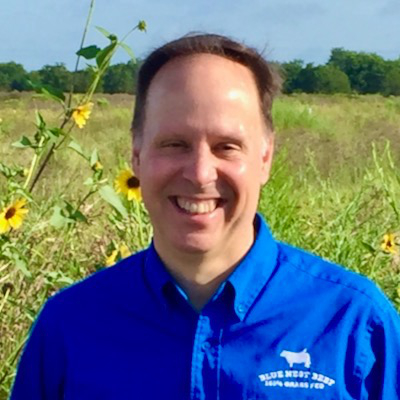
Russ Conser
CEO
Standard Soil, PBC
Originally a mechanical engineer, Russ spent 30 years at Shell first finding and extracting dead carbon from the deep earth, then after a brief detour into corporate finance, strategy and scenarios, leading investment in novel and alternative energy technologies at Shell Technology Ventures and Shell’s “GameChanger” breakthrough innovation program.
Russ retired from Shell in 2013 and has since been focused on the science and business of putting living carbon back into the shallow Earth by working to scale up proven regenerative agriculture practices. He is currently President of The Grassfed Exchange – a non-profit regenerative agriculture educational foundation focused on farmer-to-farmer knowledge exchange.
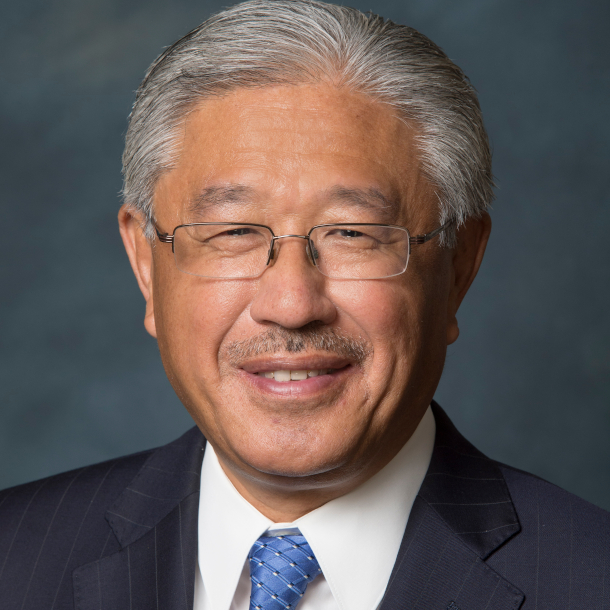
Victor J. Dzau, M.D. (NAM)
President
National Academy of Medicine
At NAM, Dzau leads a strategy of innovation and equity. Under his tenure, the NAM has launched important initiatives including the Global Health Risk Framework, the Human Genome Editing Initiative, the Action Collaborative on Clinician Well-Being and Resilience, and the Healthy Longevity Grand Challenge. Dzau is a leader in global health, having co-founded Duke’s Global Health Institute, Harvard’s Brigham and Women’s Hospital’s Division of Global Health Equity, and Duke’s National University of Singapore School of Medicine. Dzau serves on the Global Preparedness Monitoring Board and is a principal of ACT (Access to Covid-19 Tools) Accelerator. He co-chaired the G20-European Commission’s Scientific Expert Panel on Global Health Security, is advisor to the G20 High-Level Independent Panel on Sustainable Financing for Pandemic Preparedness, and current member of the G7 Health Agenda Task Force.
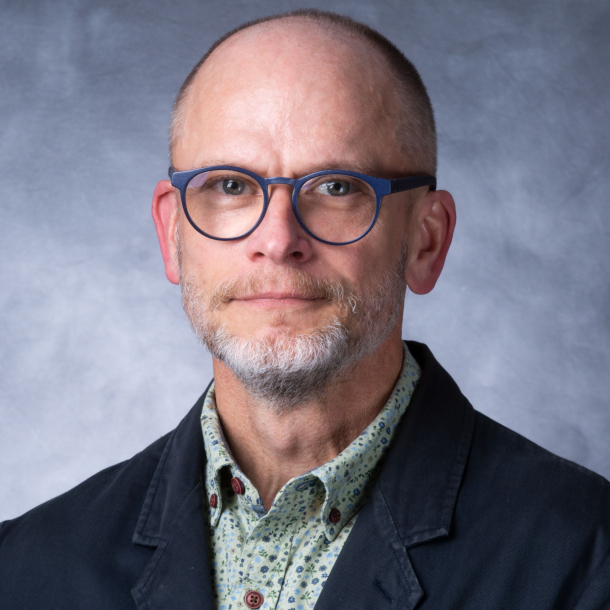
Andy Futreal, Ph.D.
Vice President of Strategic Translational Research Programs
Chair and Professor
Department of Genomic Medicine
The University of Texas MD Anderson Cancer Center
Effective September 1, 2021, Andy began his new role as Vice President of Strategic Translational Research Programs at MD Anderson Cancer Center. In his role as Chair/Professor, Genomic Medicine, Dr. Futreal applies his knowledge of cancer genomics to improve both short-term and long-term patient outcomes extending to cancer survivorship. He is the platform leader for genomics and informatics for the Moonshot initiative.
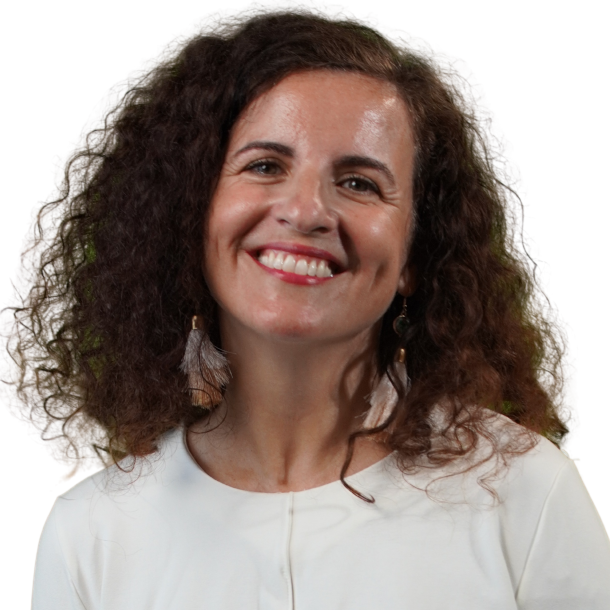
Juliana Garaizar
Chief Development and Investment Officer
Head of Houston Incubator
Greentown Labs
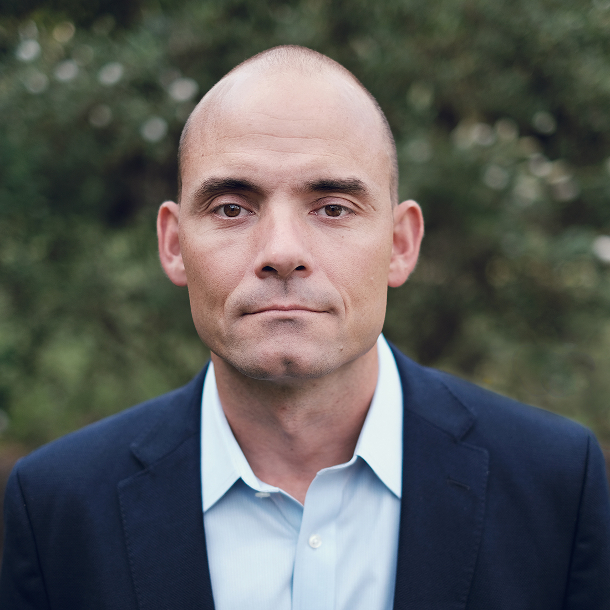
Charles A. Gersbach, Ph.D.
John W. Strohbehn Distinguished Professor
Department of Biomedical Engineering
Duke University
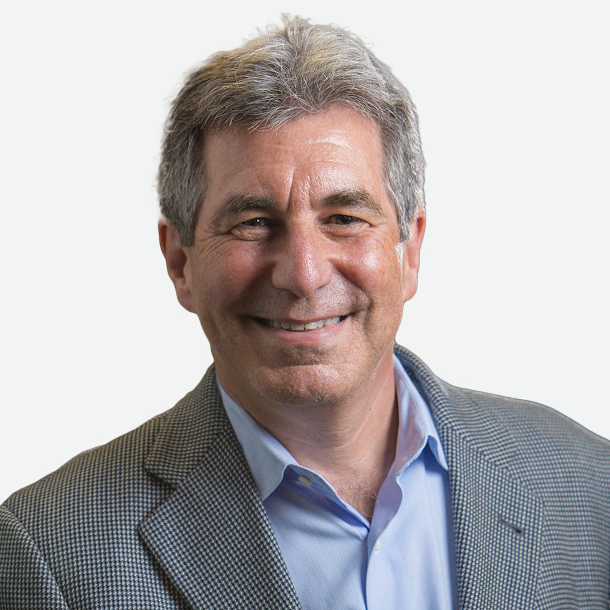
Geoffrey Ginsburg, M.D., Ph.D.
Chief Medical and Scientific Officer
All of Us Research Program
National Institutes of Health (NIH)
Throughout his career, Ginsburg has demonstrated a strong commitment to interdisciplinary science and innovation, with work spanning oncology, infectious diseases, cardiovascular disease, and metabolic disorders. He has held leadership roles in the U.S. and internationally, serving as co-chair of the National Academies’ Roundtable on Genomic and Precision Health, a founding co-chair of the International HundredK+ Cohorts Consortium, and founder and president of the Global Genomic Medicine Collaborative (G2MC), a not-for-profit organization aimed at creating international partnerships to advance the implementation of precision medicine. At NIH, Ginsburg has served on the board of external experts for the National Heart, Lung, Blood Institute, as an advisory council member to the National Human Genome Research Institute and the National Centers for Advancing Translational Sciences, and most recently on the Advisory Committee of the Director of NIH.
He received his M.D. and Ph.D. in biophysics from Boston University and completed an internal medicine residency at Beth Israel Hospital in Boston. Subsequently, he pursued postdoctoral training in clinical cardiovascular medicine at Beth Israel Hospital and in molecular biology at Children’s Hospital as a Bugher Foundation Fellow of the American Heart Association.
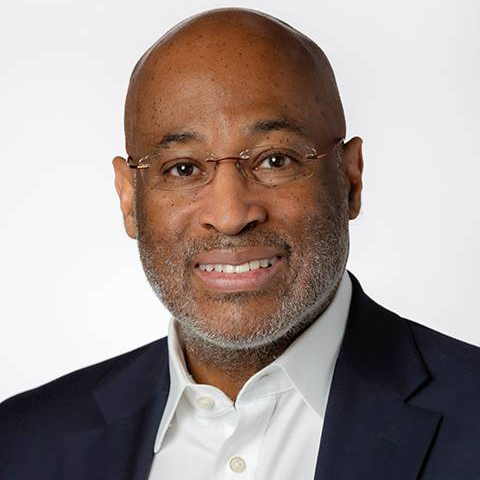
Peter F. Green, Ph.D. (NAE)
Deputy Laboratory Director, Science and Technology
Chief Research Officer
National Renewable Energy Laboratory (NREL)
Green is a former president of the Materials Research Society (MRS). Green was elected to the status of fellow of the following professional societies: the American Physical Society, the Royal Society of Chemistry (United Kingdom), the American Association of Arts and Science, the American Ceramics Society, and of the MRS. Green is a former Associate editor of Physical Review Letters and the Inaugural editor in chief of MRS communications. He is the 2022 Distinguished Alumnus of the MSE department, Cornell Univ., and a recipient of the US Department of Energy Secretary’s Achievement Award, in 2021 and again in 2023. He was recently elected to the National Academy of Engineering, class of 2023.
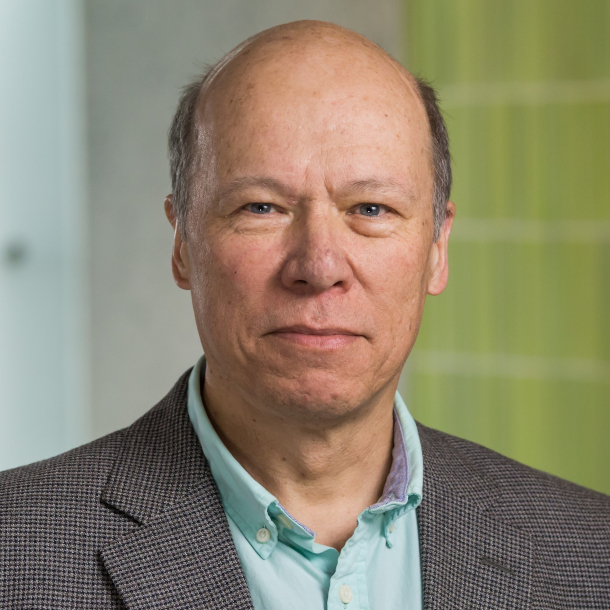
Eric D. Larson, Ph.D.
Research Professor
Andlinger Center for Energy and the Environment
Princeton University
Eric Larson is a research professor at Princeton University, where he leads the Energy Systems Analysis Group in the multi-disciplinary Andlinger Center for Energy and the Environment. His research intersects engineering, environmental science, economics, and public policy. Through analytical and modeling studies that identify and assess sustainable, engineering-based solutions to climate change and other major energy-related problems, he aims to inform private and public-sector decision making. He co-led Princeton’s recent Net-Zero America study, which modeled with uniquely-high spatial and temporal resolution alternative technology pathways for the U.S. to reach net-zero greenhouse gas emissions by 2050. He has additionally published extensively, including on the design and analysis of advanced biomass energy conversion technologies and a variety of other fossil and renewable energy systems. Larson is an affiliated faculty member of Princeton’s High Meadows Environmental Institute and Center for Policy Research on Energy and Environment in the School of Public and International Affairs. He also holds an appointment as a senior scientist with Climate Central, a non-profit, non-partisan science and media organization that informs diverse audiences about climate change and potential solutions. Larson holds degrees in mechanical engineering from Washington University in St. Louis (BSE) and the University of Minnesota (PhD).
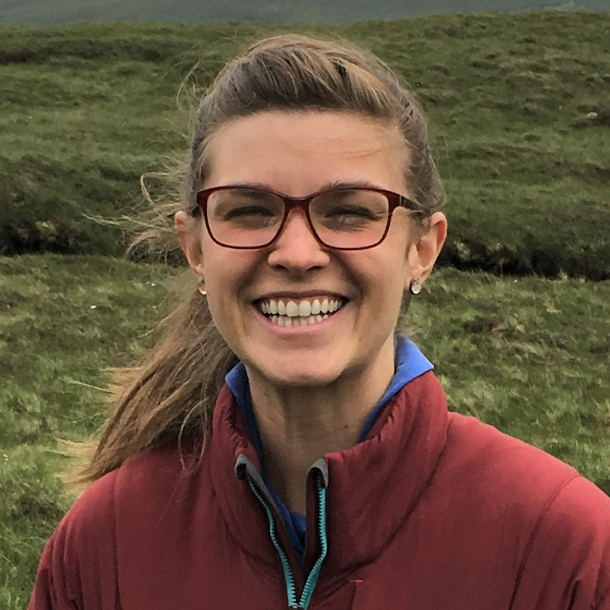
Jocelyn Lavallee, Ph.D.
Agricultural Soil Carbon Scientist
Environmental Defense Fund
Dr. Lavallee is a soil carbon expert with extensive experience studying soil carbon and nitrogen cycling and soil ecological processes. Her current focus is on soil carbon and nitrogen cycling in agricultural systems in the context of climate mitigation opportunities. She works to quantify the realistic potential of soils to contribute to climate mitigation and to ensure that emerging carbon markets are backed by rigorous science. Dr. Lavallee uses her knowledge of soil carbon dynamics, methods of soil carbon measurement and modeling, and soil functioning to analyze soil carbon sequestration efforts and crediting practices with the ultimate goals of identifying real sequestration opportunities and ensuring meaningful climate mitigation outcomes.
Before joining EDF, Dr. Lavallee worked as a Postdoctoral Researcher at the University of Manchester and a Research Scientist at Colorado State University. Dr. Lavallee has past research experience on a range of soil-related topics, from soil organic matter chemistry to soil food webs to soil biogeochemical modeling. She is an Affiliate of the Soil and Crop Sciences Department and Graduate Degree Program in Ecology at Colorado State University, and maintains an active research program focused on soil organic matter dynamics at multiple scales. She is a leading expert on soil organic matter fractionation and soil carbon durability.
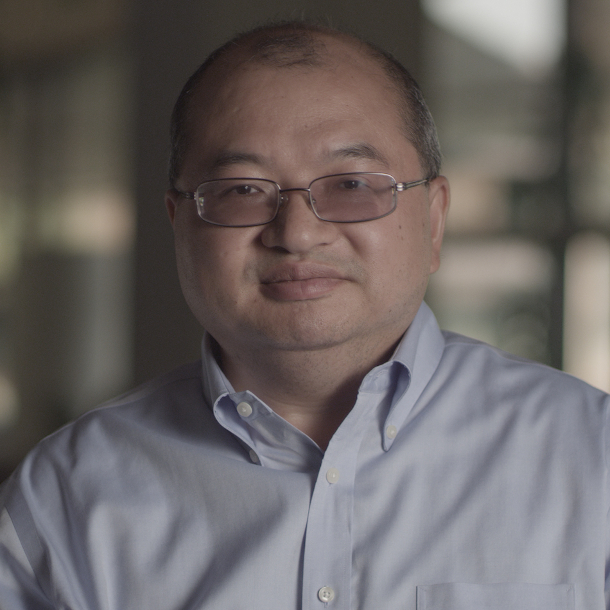
Arthur Lee
Chevron Fellow and Principal Advisor
Strategy and Sustainability
Chevron Services Company
Arthur served as a lead author in the National Petroleum Council report: Meeting the Dual Challenge – A Roadmap to At-Scale Deployment of Carbon Capture, Use, and Storage (2019).
Arthur served as the review editor of the IPCC’s Special Report on Carbon Dioxide Capture and Storage (2003-2005). The IPCC shared the 2007 Nobel Peace Prize, which in turn recognized all its authors and review editors for their contribution to the Nobel Peace Prize. Arthur was a contributing author in the Fourth Assessment Report (2007) and again a contributing author in the IPCC Special Report on Renewable Energy (2011). He again served as a Review Editor in the IPCC Sixth Assessment Report (2019-2022).
Arthur was appointed April 2010 by the U.S. Secretary of Commerce to the National Climate Assessment Development and Advisory Committee, responsible for the third assessment of climate change impacts on the United States. Arthur was the team leader on deployment issues in the CO2 Capture Project, which is the global joint industry-governments project to develop the next generation of CO2 capture and storage technology (2000 – 2022). He was a member of the United States National Academy of Sciences Board on Atmospheric Science and Climate (2008- 2013). From April 2005 to May 2007, he served as the chairman of the Climate Change Working Group of the International Petroleum Industry Environmental Conservation Association (IPIECA) and continues to serve on several task forces at IPIECCA. Currently, Arthur is serving as a member of the Climate Change Subcommittee of the Board of Scientific Counselors, U.S. Environmental Protection Agency (2022 – present).
In August 2006 and November 2007, with his leadership, Chevron was the key sponsor of the series of G8/International Energy Agency/Carbon Sequestration Leadership Workshop on Carbon Capture and Storage. The workshop series was successful in generating a consensus on recommendations for near-term opportunities for carbon capture and storage. These recommendations were delivered to G8 leaders.
Arthur served as the founding chairman of the Climate Change Working Group of the Regional Association of Oil and Natural Gas Companies of Latin America and the Caribbean (ARPEL) from 1999 to 2003. After graduate school and prior to joining Texaco in 1993, Arthur worked as a summer physicist and staff engineer at the Lawrence Livermore National Laboratory and Directed Technologies, Inc. on nuclear weapons and nuclear power. He also worked as a chemical engineer at Fluor Daniel, Inc., and then joined the U.S. Environmental Protection Agency as a regulator of the electric power sector. Arthur obtained his MS Chemical Engineering (1987) from the California Institute of Technology and BS Chemical Engineering (1985) from the Massachusetts Institute of Technology.
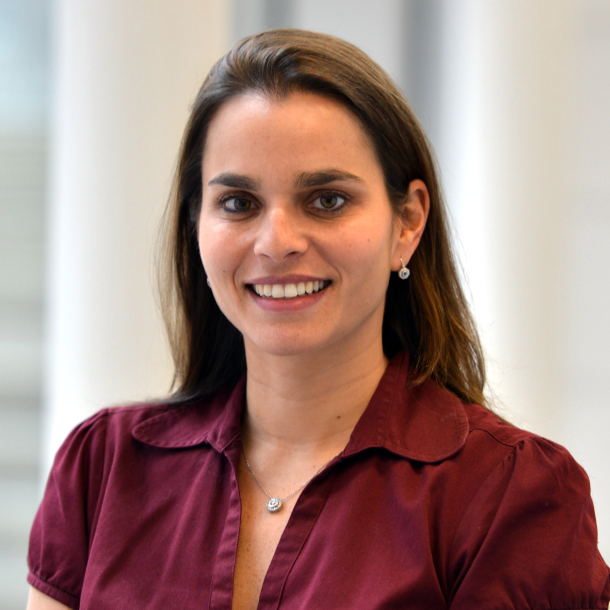
Amy L. McGuire, J.D., Ph.D.
Leon Jaworski Professor of Biomedical Ethics
Director, Center for Medical Ethics and Health Policy
Baylor College of Medicine
Amy McGuire, J.D., Ph.D., is the Leon Jaworski Professor of Biomedical Ethics and Director of the Center for Medical Ethics and Health Policy at Baylor College of Medicine. She researches ethical and policy issues related to emerging technologies and innovative therapeutics, with a particular focus on genetics and genomics, big data, neuropsychology, and the clinical integration of novel neurological devices. Her research is funded by the National Institutes of Health. Dr. McGuire has received numerous teaching awards at Baylor College of Medicine, was recognized by the Texas Executive Women as a Woman on the Move in 2016, and has been invited to give two TED talks: a TEDMed talk titled “There is no Genome for the Human Spirit” in 2014 and a TEDx talk titled “Can Creating Moments of Meaning Improve Mental Health?” in 2022. She has served as a member of the National Advisory Council for Human Genome Research and as an advisor to the X Prize in Genomics. Currently, Dr. McGuire is on the board of the Greenwall Foundation, is a Hasting’s Center Fellow, and is a member of the Scientific Advisory Board for Geisinger Research, The Morgridge Institute for Research, and Nurture Genomics.
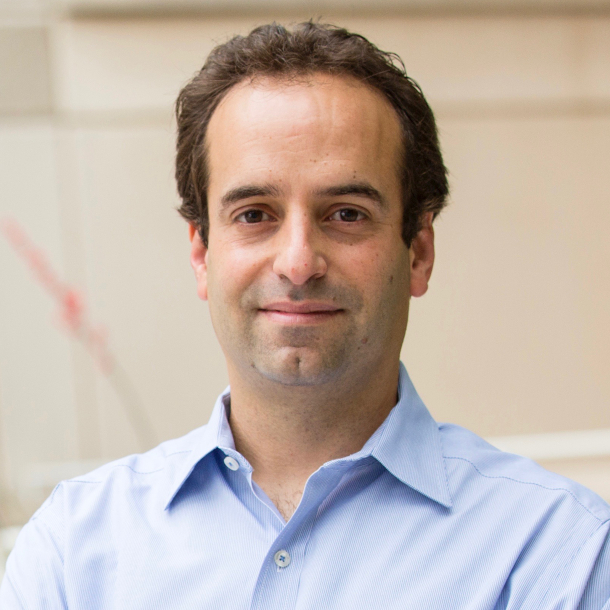
Joshua T. Mendell, M.D., Ph.D.
Charles Cameron Sprague, M.D. Chair in Medical Science
UT Southwestern Medical Center
Investigator
Howard Hughes Medical Institute
Dr. Mendell has been the recipient of several awards including the Allan C. Davis Medal for the Outstanding Young Scientist in the State of Maryland in 2007, the AACR Award for Outstanding Achievement in Cancer Research in 2010, the O’Donnell Award from the Texas Academy of Medicine, Engineering, Science, and Technology (TAMEST) in 2016, and the Paul Marks Prize in Cancer Research in 2019. Dr. Mendell was appointed as a Howard Hughes Medical Institute (HHMI) Early Career Scientist in 2009 and an HHMI Investigator in 2015. In 2011, Dr. Mendell received a Rising Stars Award from the Cancer Prevention and Research Institute of Texas (CPRIT) and relocated his laboratory to UT Southwestern Medical Center in Dallas where he is currently a Professor and Vice-Chair in the Department of Molecular Biology and a member of the Simmons Cancer Center and the Center for Regenerative Science and Medicine.
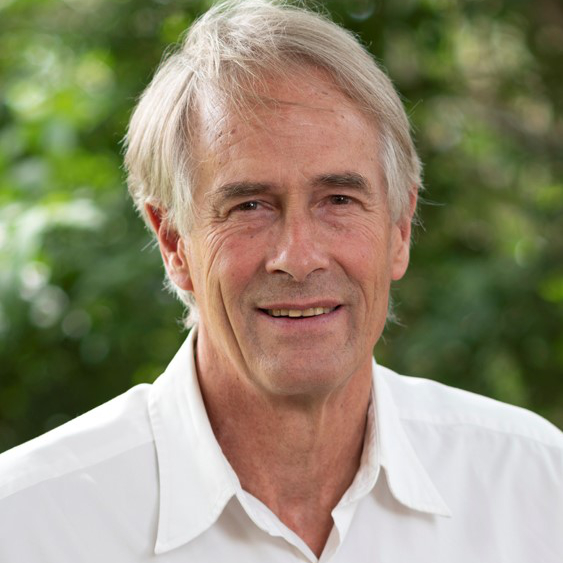
Keith Paustian, Ph.D.
University Distinguished Professor
Department of Soil and Crop Sciences
Senior Research Scientist
Natural Resource Ecology Laboratory
Colorado State University
Keith Paustian is University Distinguished Professor in the Department of Soil and Crop Sciences and Senior Research Scientist at the Natural Resource Ecology Laboratory at Colorado State University. A major focus of his work involves basic and applied studies of soil organic matter dynamics and modeling, field measurement and development of assessment tools for soil carbon sequestration and greenhouse gas emissions from soils. He has published over 400 journal articles and book chapters. Previous and current research activities include development of models and inventory methodology used to estimate US soil C and N2O emissions for UNFCCC national reporting and development of a web-based tool (COMET-Farm™) for estimating on-farm greenhouse gas (GHG) emissions and carbon sequestration used by USDA, NGOs, industry and agricultural producers (http://cometfarm.com/). Professional service includes Coordinating Lead Author for the IPCC 2006 National Greenhouse Gas Inventory Methods and the IPCC 2003 Good Practice Guidance and three National Academy of Science committees (2010-11, 2018-19, 2021-23) related to land use, greenhouse gases and climate change mitigation. He served as a member of the US Carbon Cycle Science Steering Group and has been a science advisor to greenhouse gas registries, including Verra/VCS, the Climate Action Reserve (CAR) and the California Air Resources Board. He is a Fellow of the Soil Science Society of America, recipient of the Soil Science Society of America’s Outstanding Research Award in 2015, 2019 winner of the Global Foodshot Groundbreaker Award and 2021 Reuters Hot List of Climate Scientists.
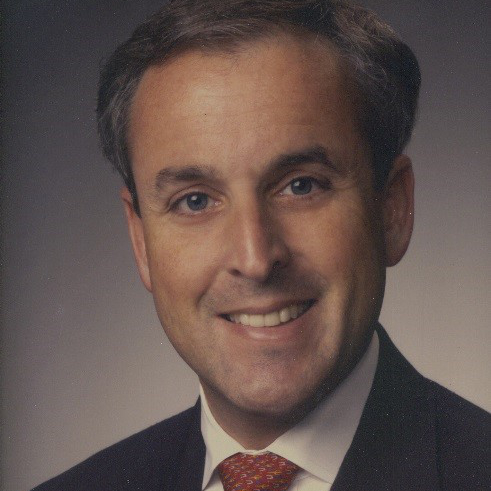
Brett Perlman, J.D.
CEO
Center for Houston’s Future
Brett A. Perlman serves as the CEO of the Center for Houston’s Future, a nonprofit organization working to address matters of highest importance to the long-term future of the greater Houston region.
His career has spanned senior positions in business, government and community service organizations.
Perlman served for four years as a Commissioner on the Public Utility Commission of Texas, where he was appointed in 1999 by then-Governor George W. Bush.
He holds advanced degrees in public policy from Harvard University and in law from the University of Texas, and was a Phi Beta Kappa graduate of Northwestern University.
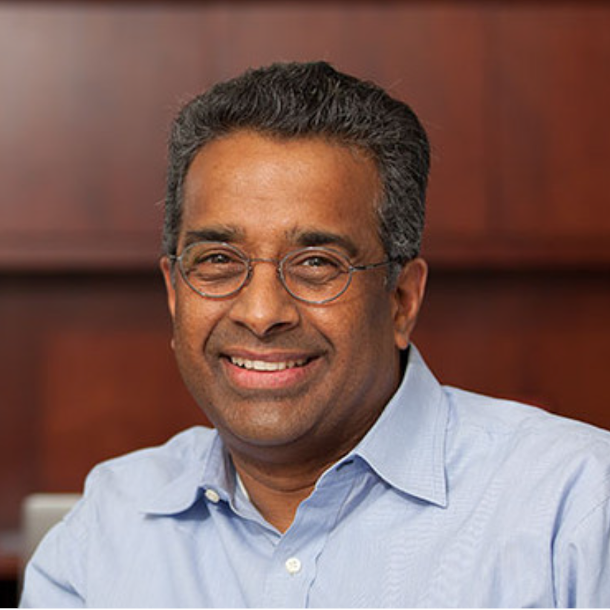
Ramamoorthy Ramesh, Ph.D. (NAE)
Vice President for Research
Rice University
His extensive publications on the synthesis and materials physics of complex oxides are highly cited (over 100,000 citations, H-factor =150). He is a fellow of APS, AAAS & MRS and an elected member of the U.S. National Academy of Engineering, a Foreign member of the Royal Society of London, the Indian National Science Academy, the Indian National Academy of Engineering and a Fellow of the American Academy for Arts and Sciences. His awards include the Humboldt Senior Scientist Prize, the APS Adler Lectureship and McGroddy New Materials Prize, the TMS Bardeen Prize and the IUPAP Magnetism Prize and Neel Medal and the Europhysics Prize in 2022. He was recognized as a Thomson-Reuters Citation Laureate in Physics for his work on multiferroics.
He served as the Founding Director of the successful Department of Energy SunShot Initiative in the Obama administration, envisioning and coordinating the R&D funding of the U.S. Solar Program, spearheading the reduction in the cost of Solar Energy. He also served as the Deputy Director of Oak Ridge National Laboratory and the Associate Lab Director at LBNL. Most recently, he served on the Biden-Harris Transition Team for Energy. He is also a co-founder of Kepler Computing, which is focused on low power computing using ferroelectrics.
Starting 15 August, he is serving as the Vice President for Research at Rice University.
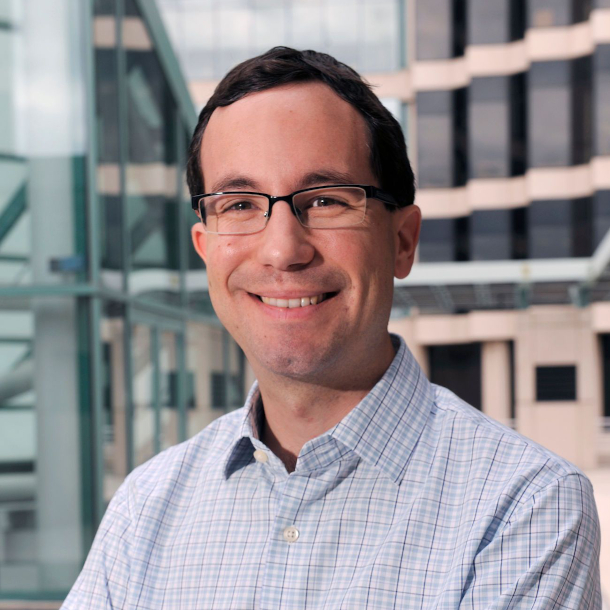
Daniel J. Siegwart, Ph.D.
Professor
Departments of Biochemistry and Biomedical Engineering
UT Southwestern Medical Center
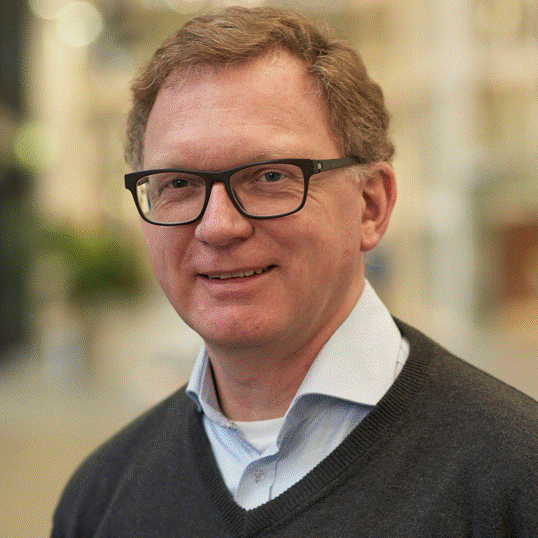
Dirk Smit, Ph.D.
Corporate Chief Scientist
Vice President of Research Strategy
Shell Global
Since then he has held numerous positions, including Chief Geophysicist for Shell UK, and Vice President Exploration and Upstream Technology. Since 2011 he has been Chief Scientist Geophysics and since 2016 he has been appointed Vice President Research Strategy while continuing in his roles as Chairman for the Shell Science Council. Recently he has been appointed Shell’s (first ever) Corporate Chief Scientist.
Dirk holds several positions outside Shell: He is a University Fellow of MIT at the Earth Research Lab in the Earth Sciences department. He holds a Visiting Professorship in Geoscience at the Chinese University of Petroleum in Beijing and is an Adjunct Professorship and Advisor at the Indian Institute of Science in Bangalore, India. He serves (and has served) on numerous university advisory and Industry Innovation boards in The Netherlands, China and US. Dirk served as a member of the National Research Council on Solid Earth Observations in the US and has been for 9 years a member of the National Dutch Science Board for Basic Science Research in the Netherlands. He also has been a member of the MIT Presidential Advisory Committee for Earth Sciences until 2021. He can be found on LinkedIn under his name.
He is the recipient of the Ludwig Mintrop Award in Geophysics from the EAGE in 2002 and was elected Fellow of the American Physical Society (APS) in 2020.
In his spare time, Dirk is keen sailor having his own sailing boat and as well an amateur astronomer. Together with his son, enjoys searching the deep skies through an 11 inch SCT (telescope) during long Dutch, winter nights.
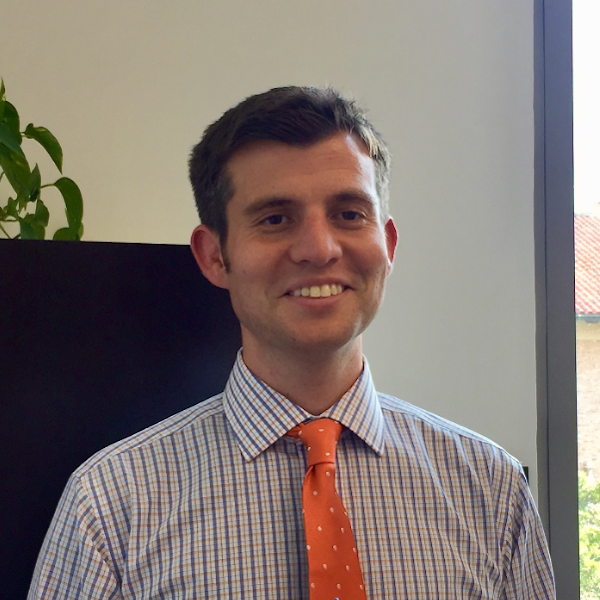
David W. Taylor, Ph.D.
Associate Professor
Department of Molecular Biosciences
The University of Texas at Austin
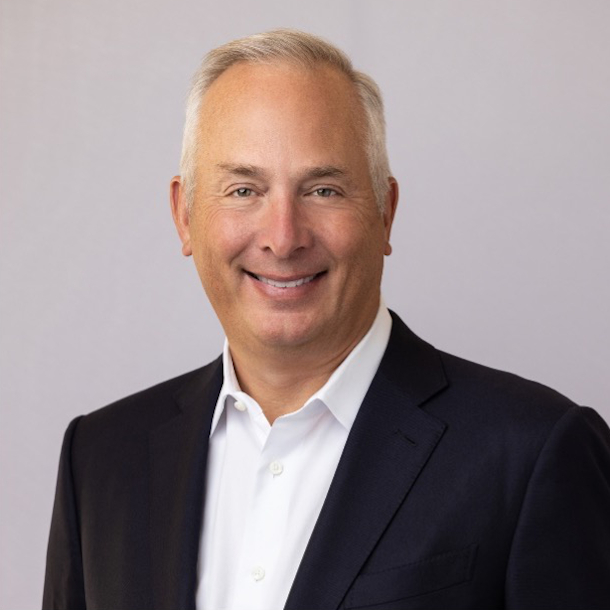
Bobby Tudor
Founder and CEO
Artemis Energy Partners
Mr. Tudor is also a Retired Founder and CEO of Tudor, Pickering, Holt & Co. TPH is a leading Energy Investment Bank formed in 2007 with over 100 employees in five offices in the US, Canada and UK.
Prior to forming TPH, Mr. Tudor was a Partner at Goldman Sachs and a leader of its worldwide Energy practice.
Mr. Tudor is currently the Chairman of the Houston Energy Transition Initiative, which is a consortium of Houston’s leading energy companies working to shape the region’s Energy Transition Strategy.
Mr. Tudor is on the Board of Directors of Puloli, Inc., an early-stage methane detection and measurement company, as well as New ASEAN Energy, a US based company involved in Petrochemicals business in Asia.
Mr. Tudor is the Past Chair of the Greater Houston Partnership and of the Rice University Board of Trustees. He serves on the Board of Advisors for Rice University’s Baker Institute for Public Policy, the National Petroleum Council, the Jones School of Business at Rice, the Carbon Neutral Coalition, and the National Advisory Board for the Tulane Center for Energy Law. Mr. Tudor also serves on the Board of Directors of the Houston Symphony, Good Reason Houston, and the MD Anderson Cancer Center Board of Visitors.
Mr. Tudor holds a BA in English and Legal Studies from Rice University, and a JD from Tulane Law School.
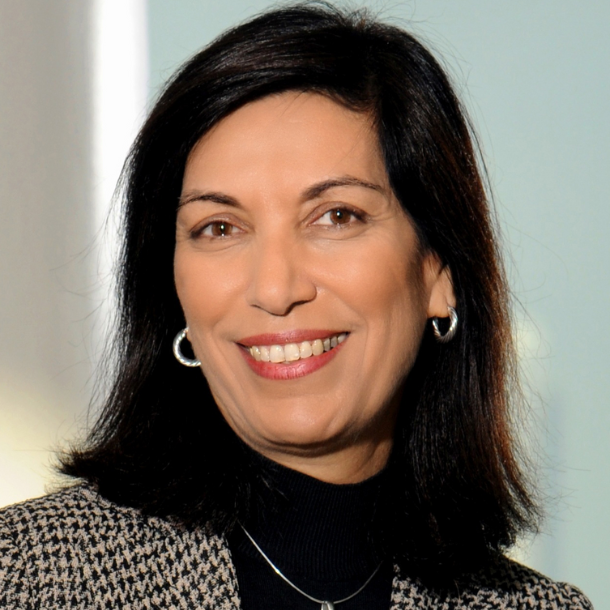
Huda Y. Zoghbi, M.D. (NAM, NAS)
Distinguished Service Professor
Baylor College of Medicine
Director, Jan and Dan Duncan Neurological Research Institute
Investigator, Howard Hughes Medical Institute
Dr. Zoghbi graduated with distinction from the American University of Beirut and received her medical degree from Meharry Medical College. She joined Baylor College of Medicine for her residency and obtained additional training in molecular genetics.
Dr. Zoghbi’s expertise ranges from neurodevelopment to neurodegeneration. She and Dr. Harry Orr discovered that Spinocerebellar Ataxia type 1 is caused by expansion of a polyglutamine tract. Her subsequent studies demonstrating that such expansion leads to accumulation of the mutant protein in neurons has had profound ramifications since many neurodegenerative disorders such as Alzheimer and Parkinson disease involve similar accumulations of disease-driving proteins. She discovered Atoh1 and showed that it governs the development of components of the proprioceptive, balance, hearing, vestibular, and breathing pathways. She also discovered that mutations in MECP2 cause the postnatal neurological disorder Rett syndrome and revealed the importance of this gene for various neuropsychiatric features.
Dr. Zoghbi has trained over 100 scientists and physician-scientists. She has been committed to educating the next generation of scientists. She has been elected to the National Academy of Medicine, the National Academy of Sciences, and the American Academy of Arts and Sciences and has received several honors including the Breakthrough Prize, Brain Prize and the Kavli Prize.
